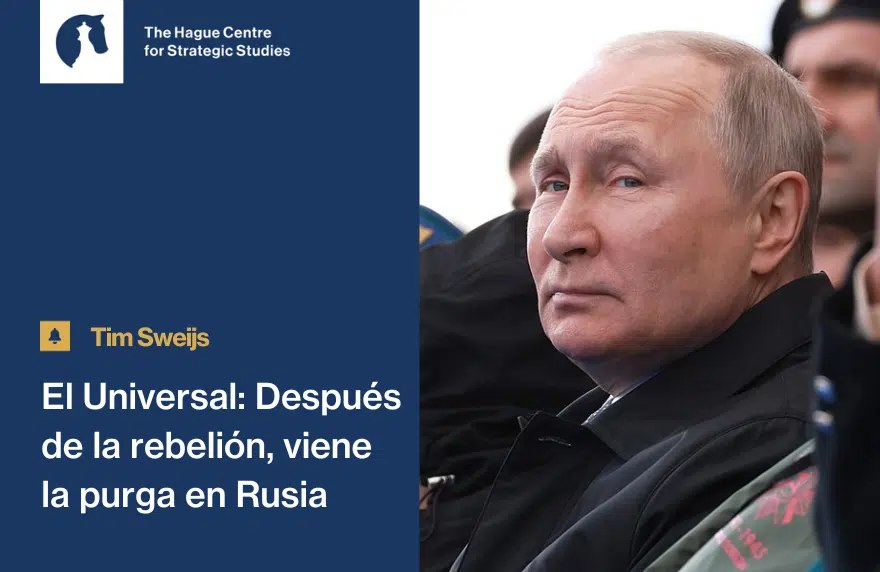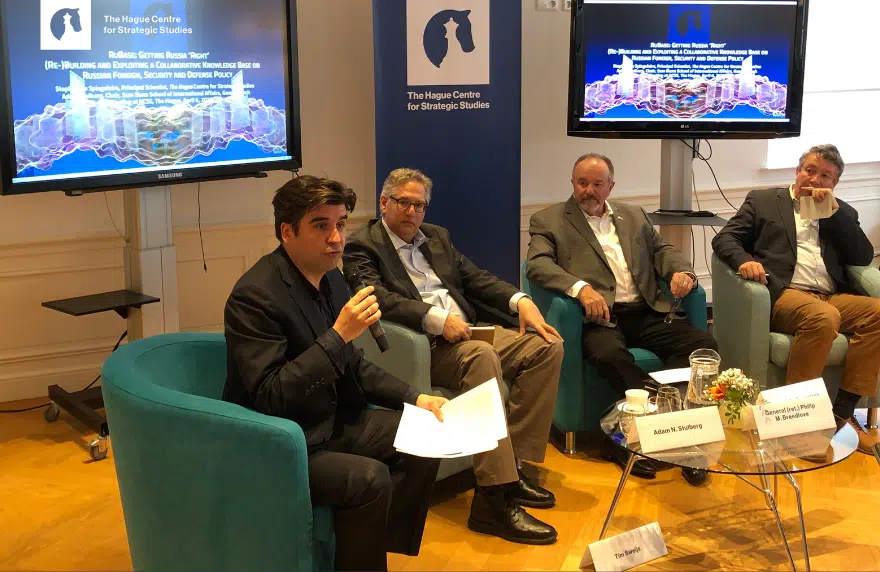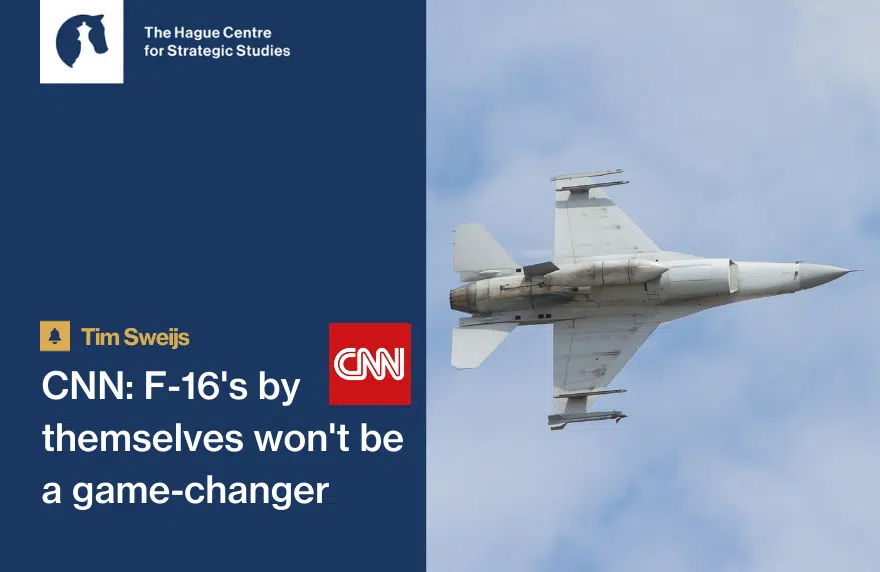After the rebellion comes the purge. In conversation with El Universal, HCSS Director of Research Tim Sweijs states that Vladimir Putin will toughen his position against anything that sounds like a threat, even in his government. “In the long term this may result in a weakening of Putin, because he showed the Russian people and his elite contenders that their position may be threatened; but in the short term it will lead to a closing of the ranks in which potential contenders will be crushed.”
Después de la rebelión, viene la purga en Rusia
Expertos coinciden en que Vladimir Putin endurecerá su postura frente a todo aquello que suene a amenaza, incluso en el gobierno.
Bruselas — Hace unas semanas un periodista preguntó al presidente ruso Vladimir Putin si sabía perdonar, a lo que respondió que “sí”, con excepción de situaciones en las que la lealtad es sepultada por la traición.
“The dynamics of the past, like that of Hitler in Germany, have shown that those who try to challenge the dictatorship are crushed”
Tim Sweijs
Con esa anécdota en mente, estudiosos de Putin anticipan una limpia a profundidad del círculo más cercano al poder como consecuencia de la vergonzosa rebelión fallida emprendida por un “monstruo” de propia creación, como es el Grupo Wagner, encabezado por el que un día fuera llamado el cocinero del Kremlin, Yevgeny Prigozhin.
De materializarse el análisis de los expertos, la respuesta de Putin quedará marcada en los libros de la historia como la versión rusa de “la noche de los cuchillos largos”, la operación emprendida el 30 de junio de 1934 por Adolfo Hitler para purgar a la élite nazi.
“A largo plazo esto puede implicar un debilitamiento de Putin porque mostró al pueblo ruso y a sus contendientes en la élite que su posición puede verse amenazada, pero a corto plazo conducirá a un endurecimiento de las filas en el que habrá un aplastamiento de los posibles contendientes”, dice a EL UNIVERSAL Tim Sweijs, director del Departamento de Investigación del Centro de Estudios Estratégicos de La Haya (HCSS).
“Con el cierre de filas buscará tener un control más rígido de aquellos elementos independientes que suponen una amenaza. Podríamos incluso llegar a pensar en una especie de noche de los cuchillos largos. No sabemos con exactitud, no tenemos bola de cristal, pero es algo que puede ocurrir en los próximos días y semanas”, explica.
“Las dinámicas del pasado, como la de Hitler en Alemania o Saddam Hussein en Irak, han mostrado que aquellos que intentan desafiar la dictadura son aplastados y el proceso conduce a mayor control en el círculo que los rodea”, añade.
Revitaliza moral ucraniana
“For Ukrainians this is good, because it means that Putin has to pay attention not only in Ukraine, but internally. This puts the Ukrainians at a political and moral advantage.”
Tim Sweijs
El mayor desafío interno enfrentado por Putin en 22 años no tendrá implicaciones en la guerra en Ucrania desde el punto de vista táctico. La ecuación en el tablero bélico habría sufrido alteraciones si Prigozhin hubiera materializado la marcha hacia Moscú.
Lo que sí habrá es un impulso a la moral de un ejército ucraniano que muestra agotamiento físico. “Se ha dado cuenta de que el oso ruso es en efecto frágil y con seguir presionando pueden emerger luchas internas”, sostiene Sweijs.
Las tropas ucranianas llevan 16 meses combatiendo y a diferencia de las rusas no tienen la opción de rotación, el combate es permanente y durará hasta el final. “Para los ucranianos esto es bueno, porque significa que Putin debe poner atención no sólo en Ucrania, sino internamente. Esto coloca a los ucranianos en una ventaja política y moral”.
¿El Keymaker?
“It was a sign of weakness, not strength, to have had to rely on another leader to stop a mercenary from marching on the capital.”
Tim Sweijs
Una vez más el presidente bielorruso Alexander Lukashenko demostró el valioso papel que desempeña para el régimen ruso. En esta ocasión fue utilizado para la ejecución de la operación diseñada para gestionar los daños causados por el motín pasajero que humilló a Putin.
La versión oficial es que gracias a la mediación de Lukashenko, Prigozhin suspendió abruptamente el motín y retiró sus tropas con lo cual se evitó “un mayor derramamiento de sangre”. Lukashenko habría ofrecido paso seguro a Prigozhin y sus hombres rumbo a Bielorrusia.
“Indiscutiblemente Lukashenko jugó un papel, pero fue uno que contó con el visto bueno del Kremlin. Fue instrumentado para negociar y evitar el enfrentamiento”, sostiene Sweijs.
“Fue una señal de debilidad, no de fortaleza, el haber tenido que depender de otro líder para evitar que un mercenario marche hacia la capital. Resultó ser lo más conveniente considerando la frágil posición en la que se encontraba el Kremlin”.
Read the full article by Inder Bugarin at El Universal.






